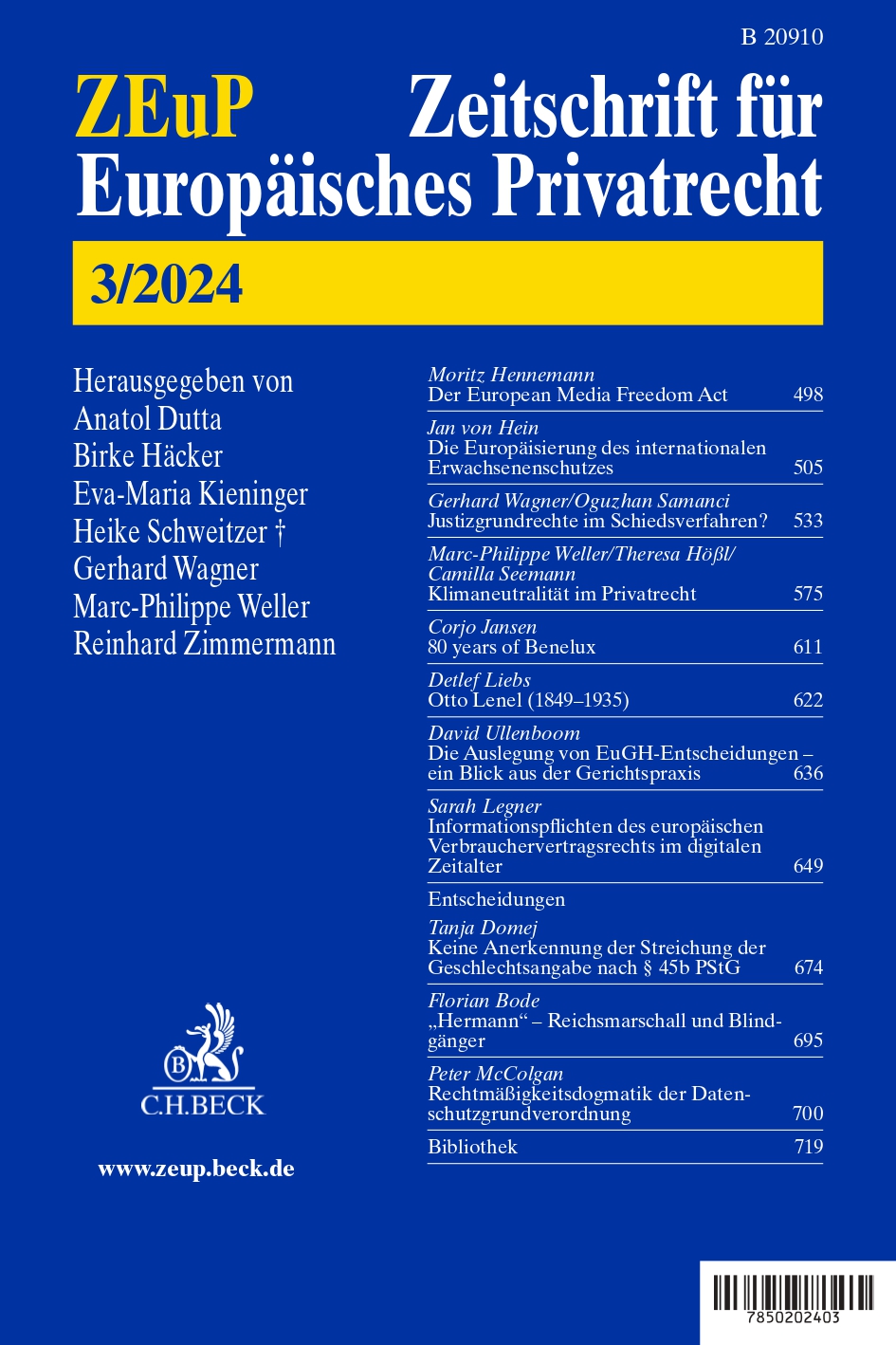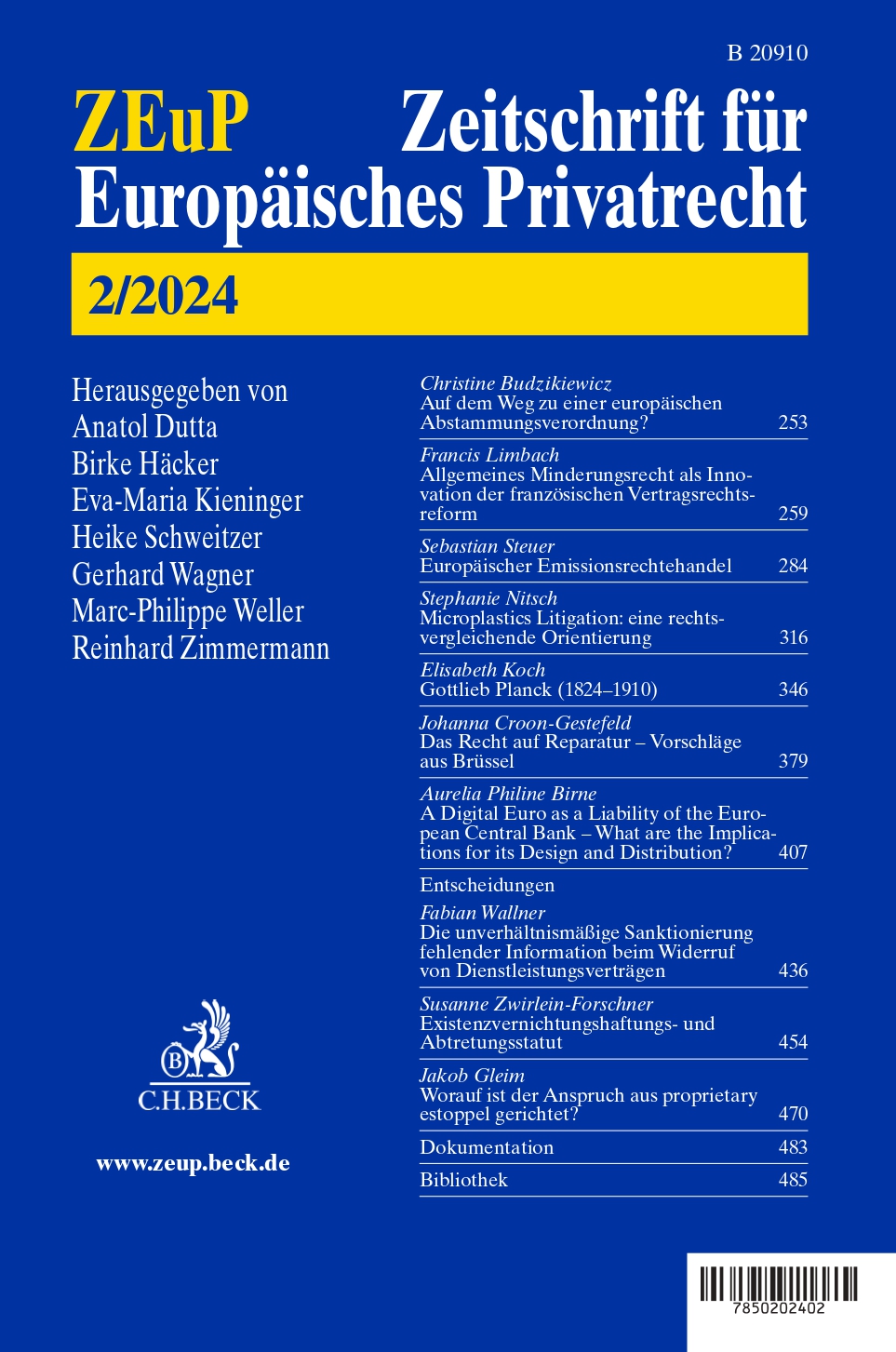A new issue of ZEuP – Zeitschrift für Europäisches Privatrecht is now available and includes contributions on EU private law, comparative law and legal history, legal unification, private international law, and individual European private law regimes. The full table of content can be accessed here.
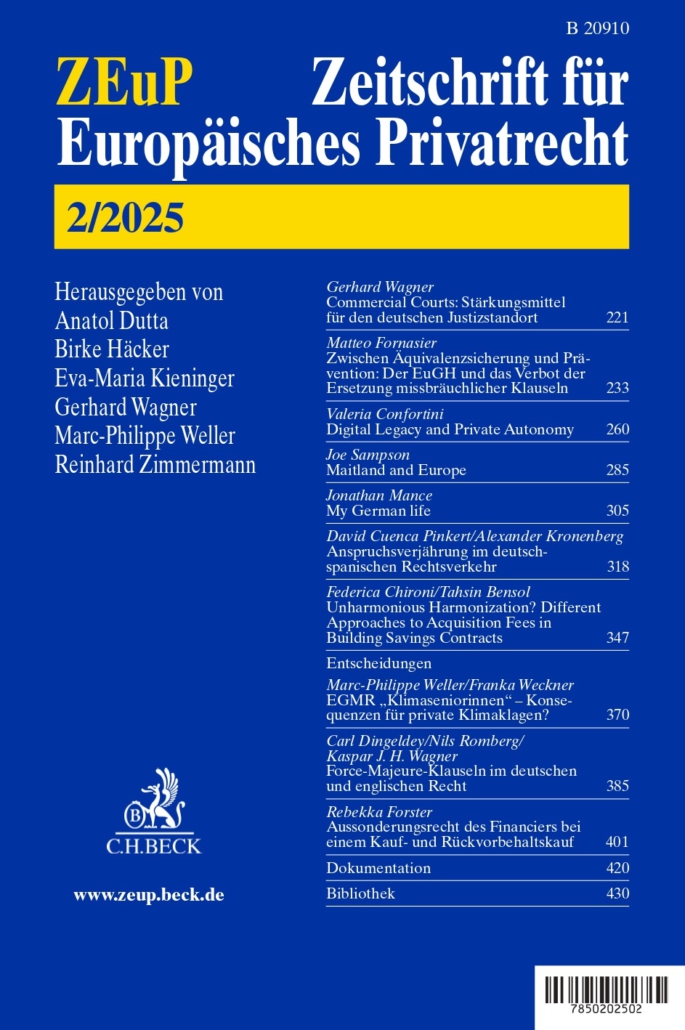
The following contributions might be of particular interest for the readers of this blog:
- Anspruchsverjährung im deutsch-spanischen Rechtsverkehr
David Cuenca Pinkert and Alexander Kronenberg on the statute of limitation in cross-border situations involving Germany and Spain: Against the background of the relevance of the application of foreign law in practice, the article analyses the institute of the statute of limitations under Spanish substantive law and also deals with similarities and differences to German law as well as selective references to conflict of laws and particularities. Due to its practical relevance, the article focuses on the treatment of the limitation period for tortious claims for damages, especially as a result of road traffic accidents.
- EGMR „Klimaseniorinnen“ – Konsequenzen für private Klimaklagen?
Marc-Philippe Weller and Franka Weckner comments on the decision by the ECtHR in Klimaseniorinnen and discuss the consequences of this decision for climate litigation brought before civil courts.
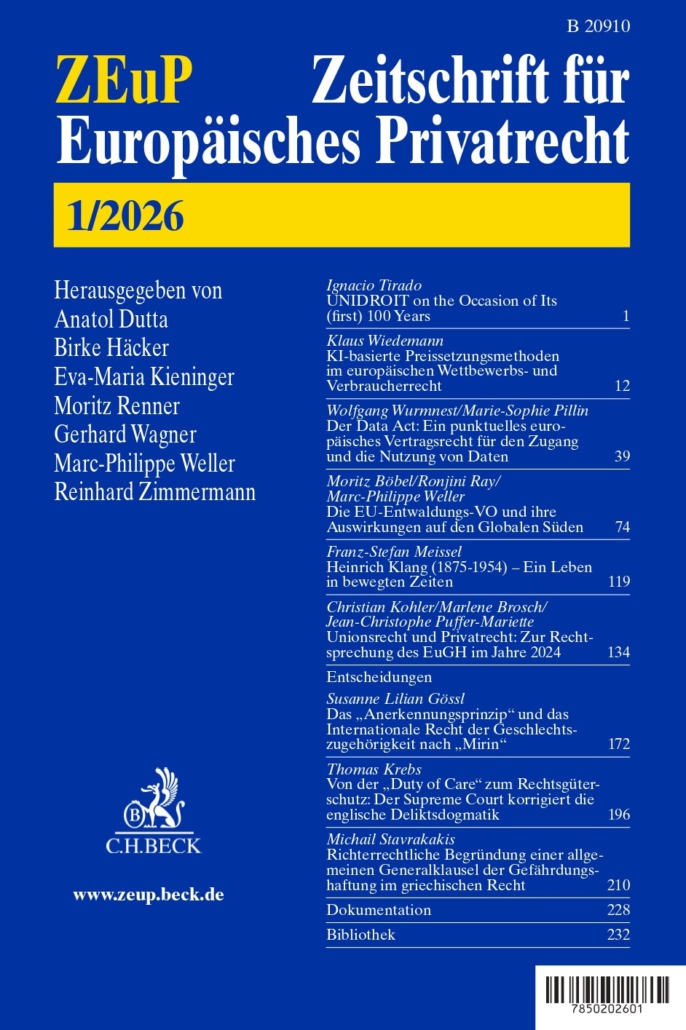

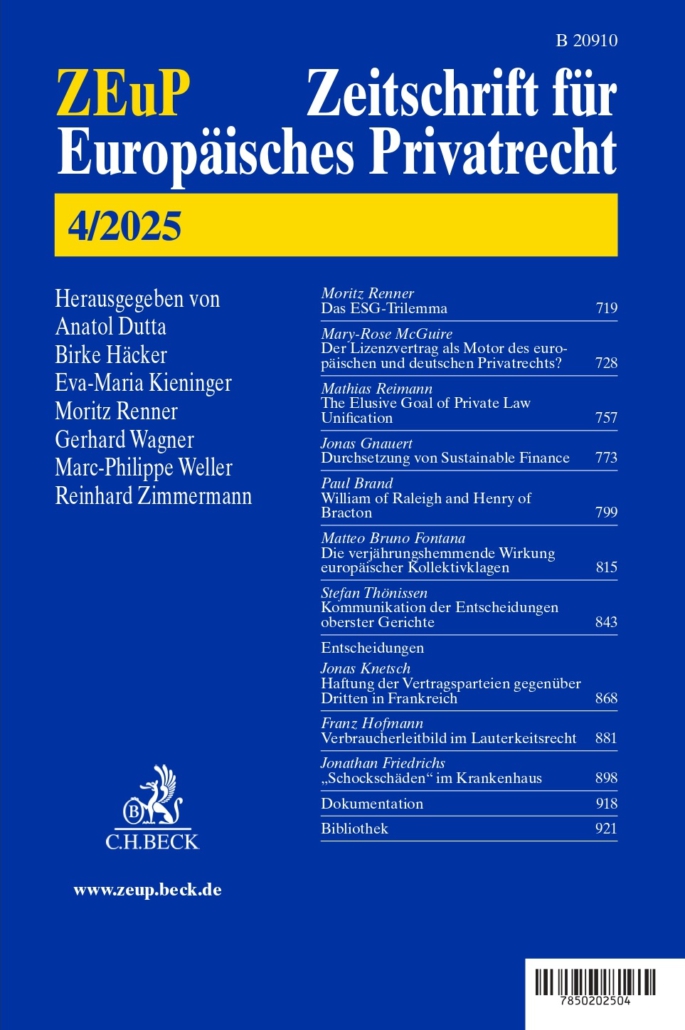
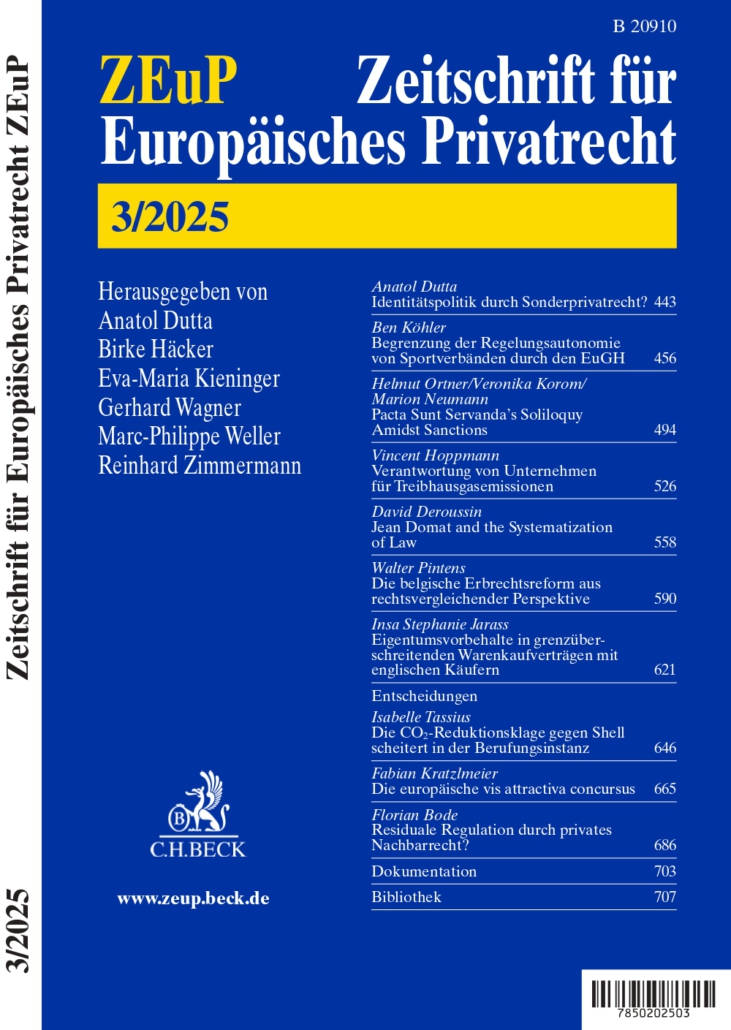

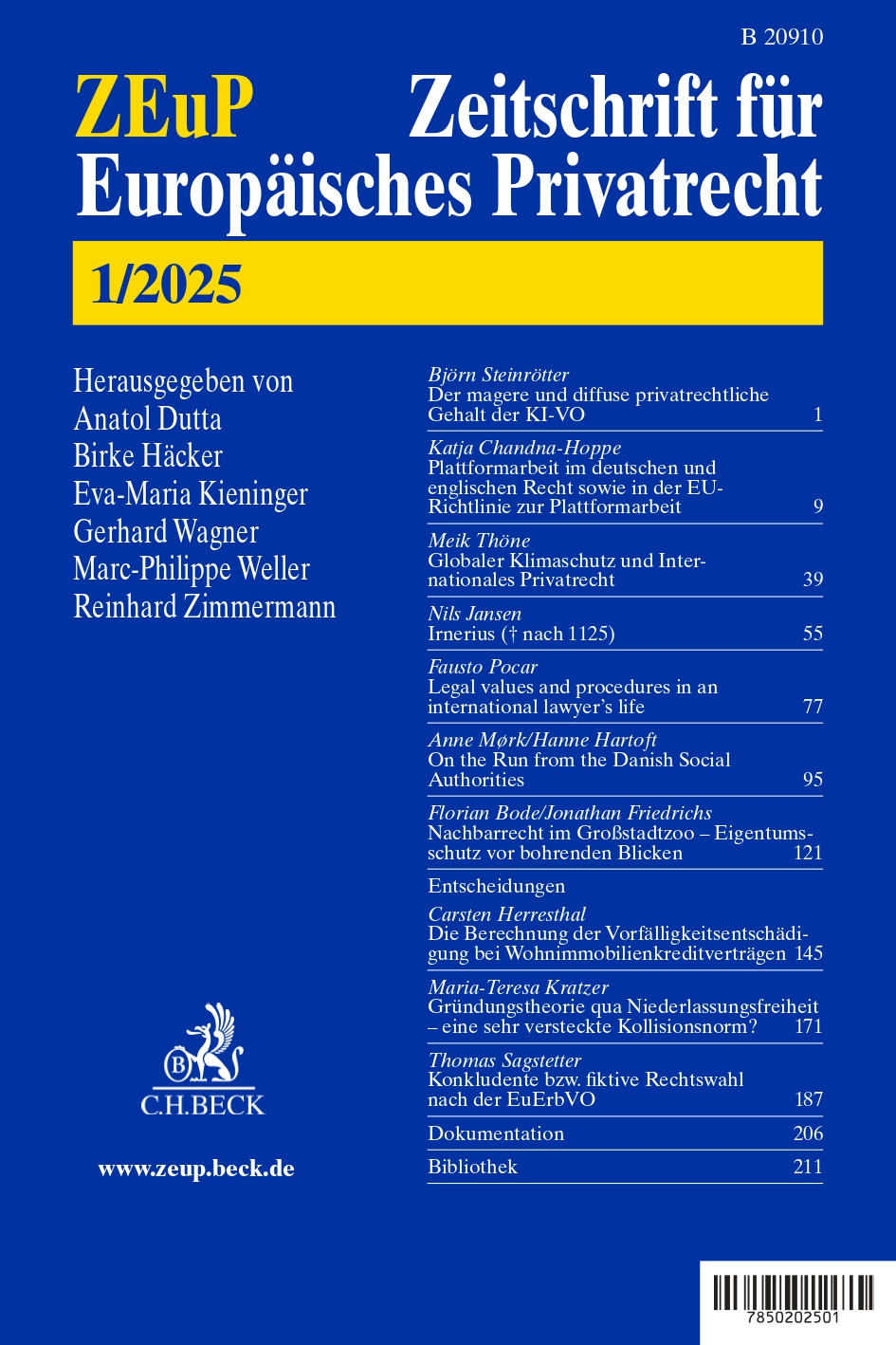 The following contributions might be of particular interest for the readers of this blog:
The following contributions might be of particular interest for the readers of this blog: 
